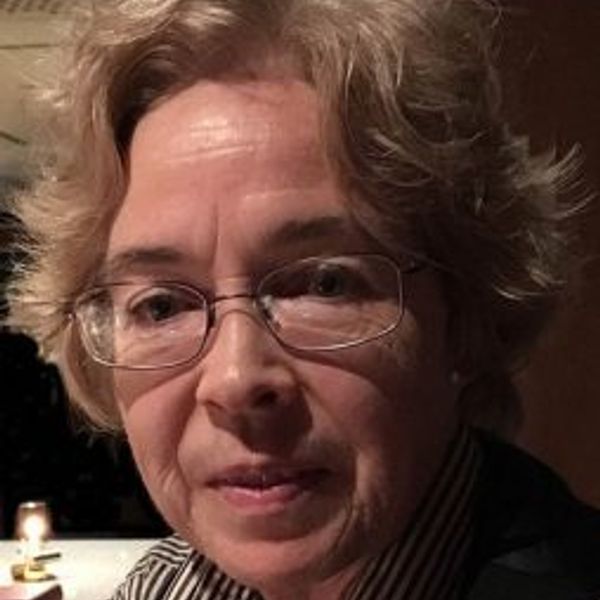Lia Purpura, Skate’s Egg Case (detail), featured in AGNI 102
Somewhere, Canada
I imagine my parents living in a small town in rural Ontario where I find them again one day. I’m walking down a dirt road in summer, the sun at my back, the landscape touched with the orange fire of late afternoon, and they come out onto their porch, squinting, shading their eyes, staring west. A lump of iron in my chest is sweating rust. Dad, in a long-sleeved flannel shirt and jeans, begins to smile and wave. My mother, wearing sunglasses and a blue kerchief, turns away, heading back into the tiny wooden house.
They know me, and yet they don’t. We’re the same people but our life stories are skewed slightly, and we recognize each other as familiar yet strange. What of the past is missing or indecipherable, like dark matter or junk DNA?
Unhindered sky stretches above, a taut drumhead. It’s big, open country out here. No place to hide. A river glitters in the near distance. A garden in front of the cabin is lush with tangles of nameless flowers. I climb the sagging steps. Inside, fishing rods and tackle stand in one corner. My mother’s green rubber boots pose by the door, miming ambivalence. I glance at the blinding landscape framed by a square cut out of umber.
I don’t know where to begin so I begin as I always do, by showing a scrapbook of my little achievements. Sitting at a table covered with red gingham, they put on their reading glasses and look at the clippings intently with the usual mix of pride, awe, and envy. Then Dad pours us little glasses of wine. A star spins in each garnet elixir. When evening’s ink seeps in with a touch of coldness, he lights a kerosene lamp, which flares and subsides to a weak, amber sun. On a few bookshelves in the dimness, I see the paperbacks my parents had when I was a child: Darkness at Noon, The Bridge on the River Kwai, The Martian Chronicles. Silence descends like a heavy curtain.
My face, floating in the river. The plain, extending in all directions, broken only by the water’s bright meandering. And at the end of its thread, what? A smudge of charcoal on the horizon. What forests, what wolves, what dissolutions await in the stillness of eons?

K. E. Duffin
K. E. Duffin is the author of the poetry collection King Vulture (University of Arkansas Press, 2005). Her poems and lyric essays have appeared in The Carolina Quarterly, Crannóg, Poetry, AGNI, Slant, Zymbol, and elsewhere, and been cited as notable in The Best American Essays. She is also a painter and printmaker. (updated 10/2018)
